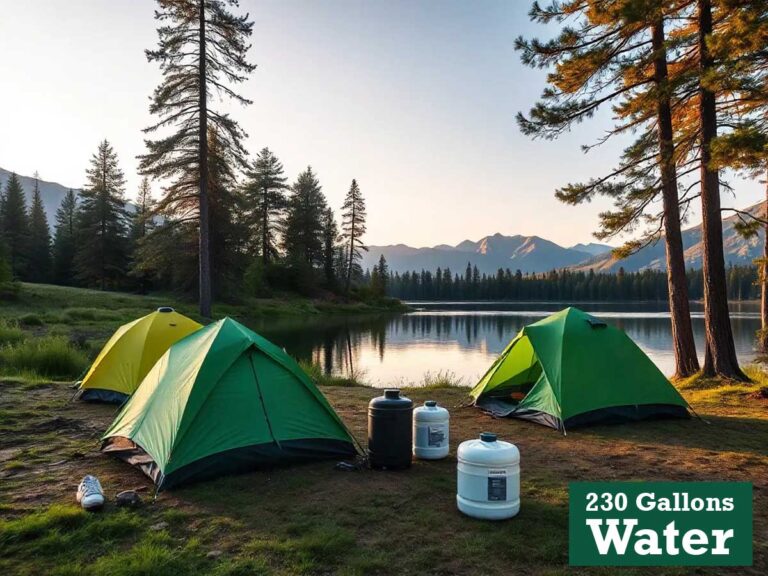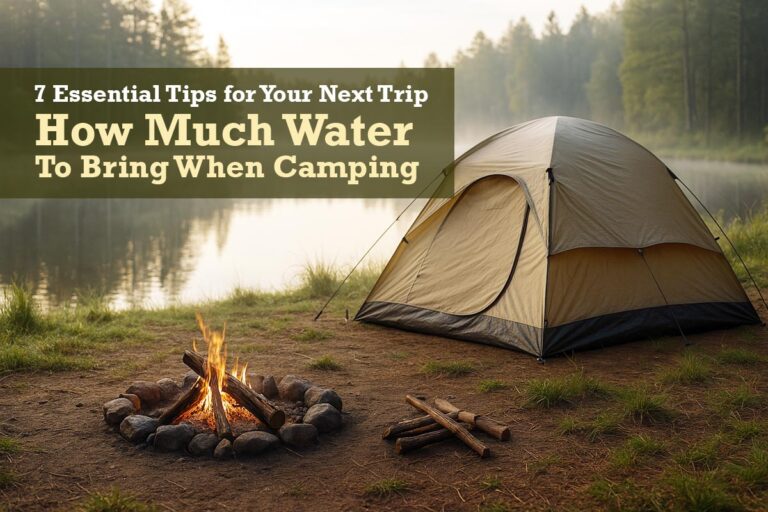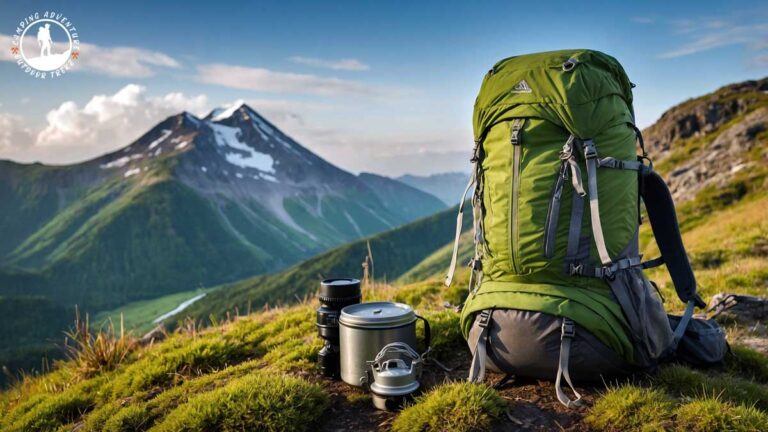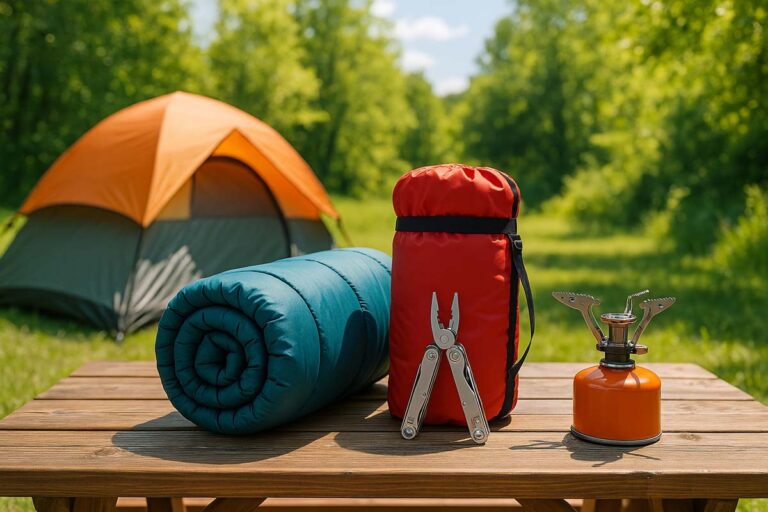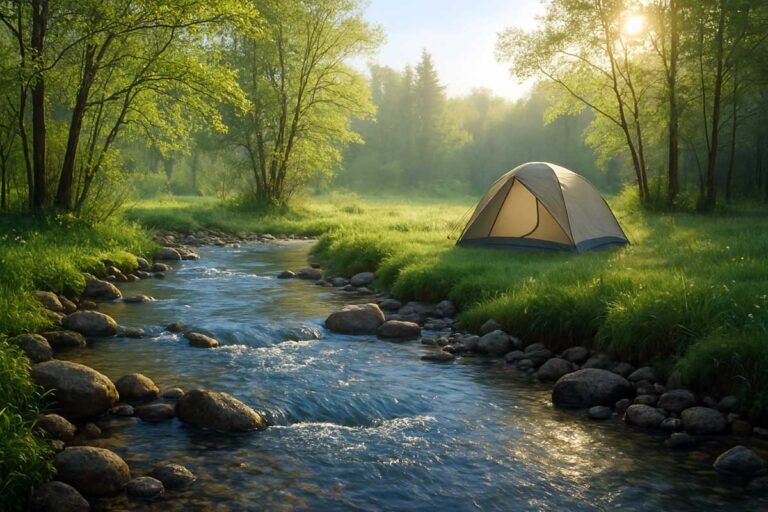How to Keep Mosquitoes Away While Camping: 8 Essential Tips
To keep mosquitoes away while camping, use a blend of insect repellents, proper clothing, strategic campsite selection, and reliable physical barriers like nets and screens.
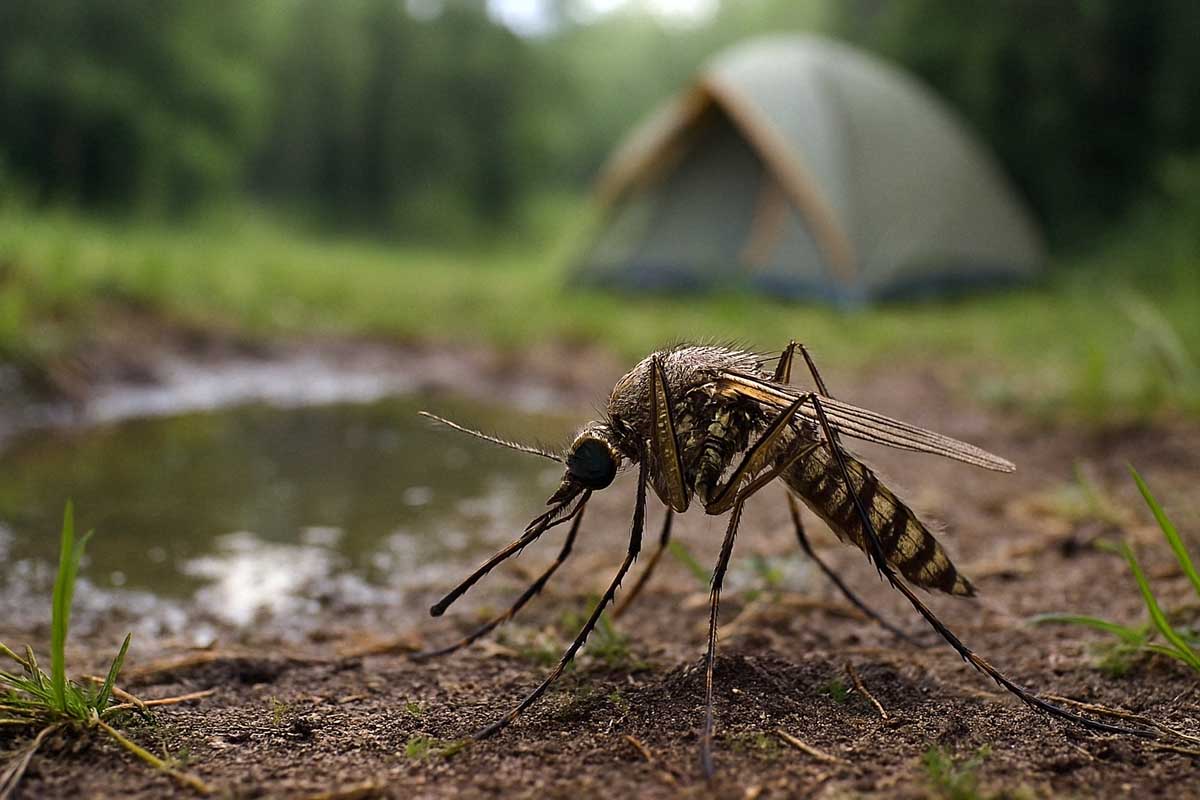
To keep mosquitoes away while camping, combine physical barriers such as screened tents and nets with effective insect repellents, appropriate clothing, proper campsite selection away from stagnant water, and natural deterrents like citronella. This step-by-step strategy minimizes exposure to mosquitoes and creates a safer, more comfortable camping experience.
My passion for the outdoors has taught me firsthand how frustrating a mosquito invasion can be when you’re trying to enjoy nature. In this article, I’ll explain in detail the best methods to prevent mosquito bites while camping. Let’s get into the details.
Contents Include
- 1 Understanding Mosquito Behavior and Risks
- 2 Choosing the Right Campsite
- 3 Setting Up Physical Barriers
- 4 Using Insect Repellents Effectively
- 5 Smart Clothing Choices
- 6 Natural Mosquito Deterrents
- 7 Utilizing Technology and Devices
- 8 Maintaining a Clean Campsite
- 9 DIY Solutions and Home Remedies
- 10 Best Practices and Additional Tips
- 11 Recap and Final Thoughts
Understanding Mosquito Behavior and Risks
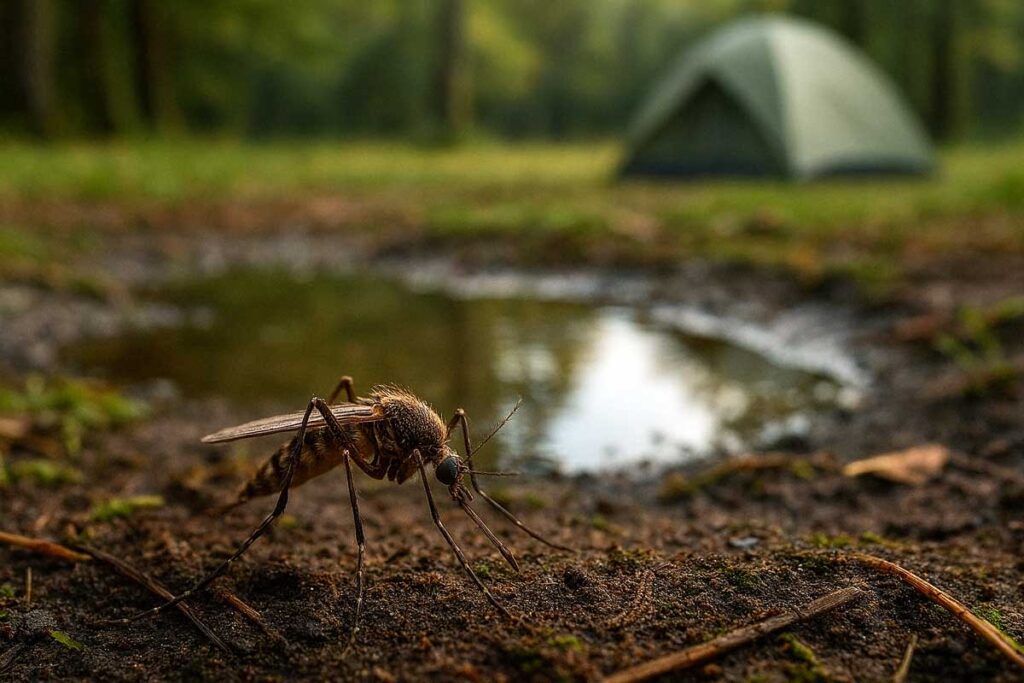
Understanding why mosquitoes gather at campsites and how they can pose serious risks is crucial for every camper. Here’s a detailed look into their behavior and the associated health concerns:
Attraction Factors:
- Carbon Dioxide and Body Heat: Mosquitoes are naturally drawn to the carbon dioxide you exhale and the heat your body emits. These factors serve as a primary signal for mosquitoes to locate their host.
- Scent and Odors: Natural body odors and certain chemicals produced by your skin can attract mosquitoes. They are highly sensitive to these scents, which guide them directly to you.
- Standing Water: Mosquitoes breed in stagnant water. Campsites near ponds, marshes, or even small puddles offer ideal breeding conditions, resulting in higher mosquito populations.
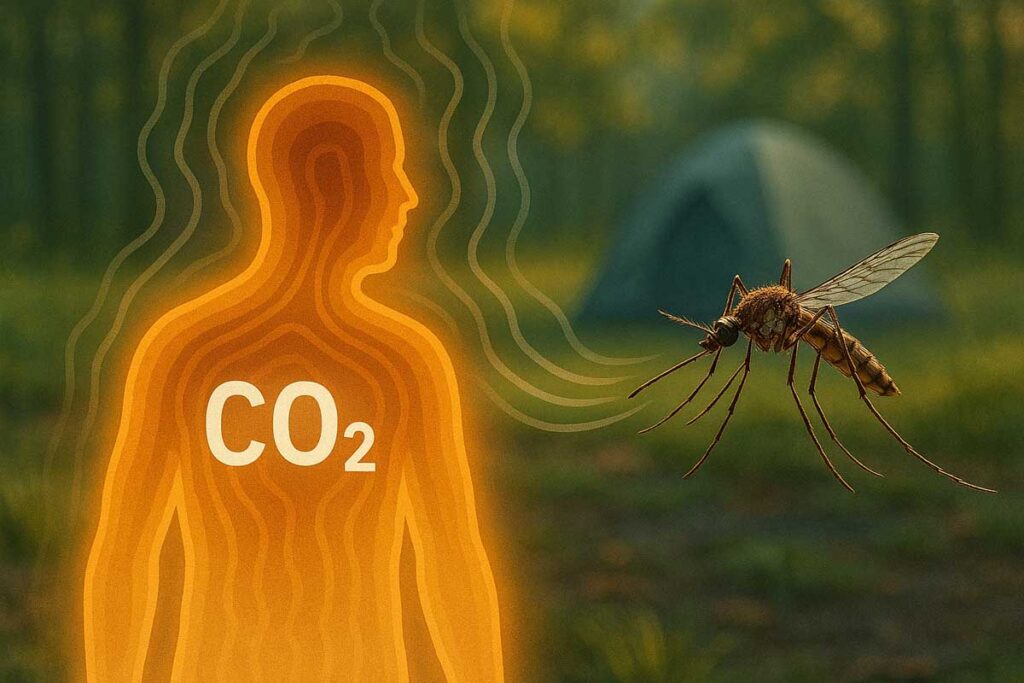
Health Concerns:
In regions like Bangladesh and across Asia, mosquitoes are not just a nuisance—they are the primary carriers of severe, life-threatening diseases:
- Malaria: In Bangladesh, mosquitoes are a key vector for malaria. This disease continues to affect many people, and its prevalence underscores the critical need for proper mosquito control measures.
- Dengue: Dengue fever, transmitted by mosquitoes, has resulted in significant fatalities in Bangladesh. A lack of awareness and preventive measures has led to many lives being lost due to dengue, making it essential for campers to take serious precautions.
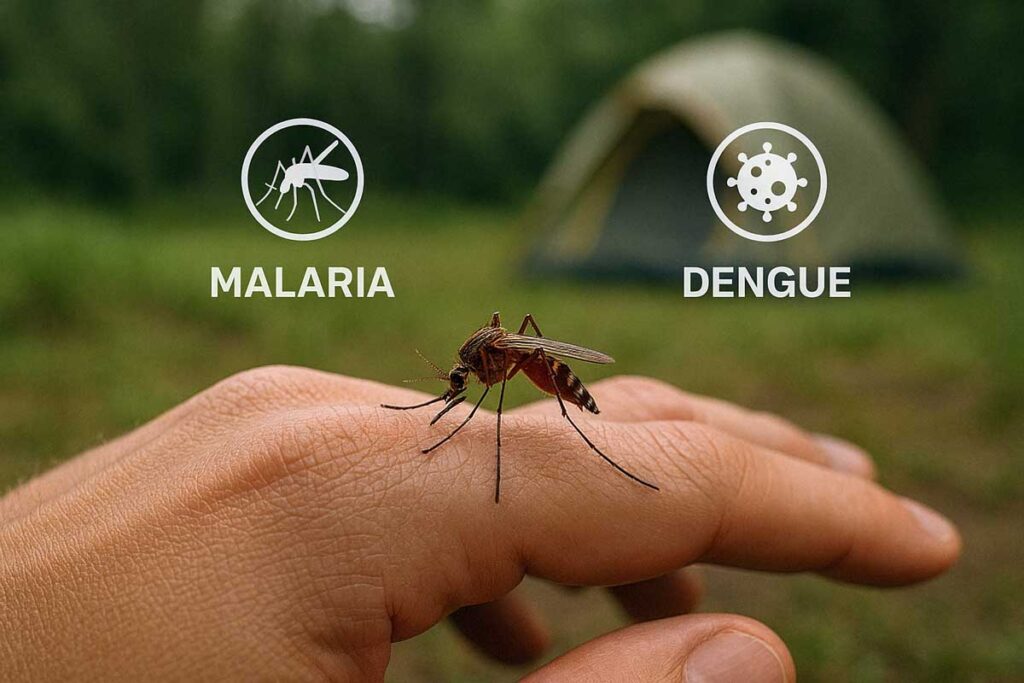
Understanding these factors helps emphasize why taking preventive measures against mosquitoes is vital—not only for enjoying a comfortable camping experience but also for safeguarding your health. For Bangladesh and similar regions, this awareness is particularly important given the high risks of malaria and dengue transmitted by these insects.
Also learn: Methods to Prevent Insects from Your Tent While Camping
Choosing the Right Campsite
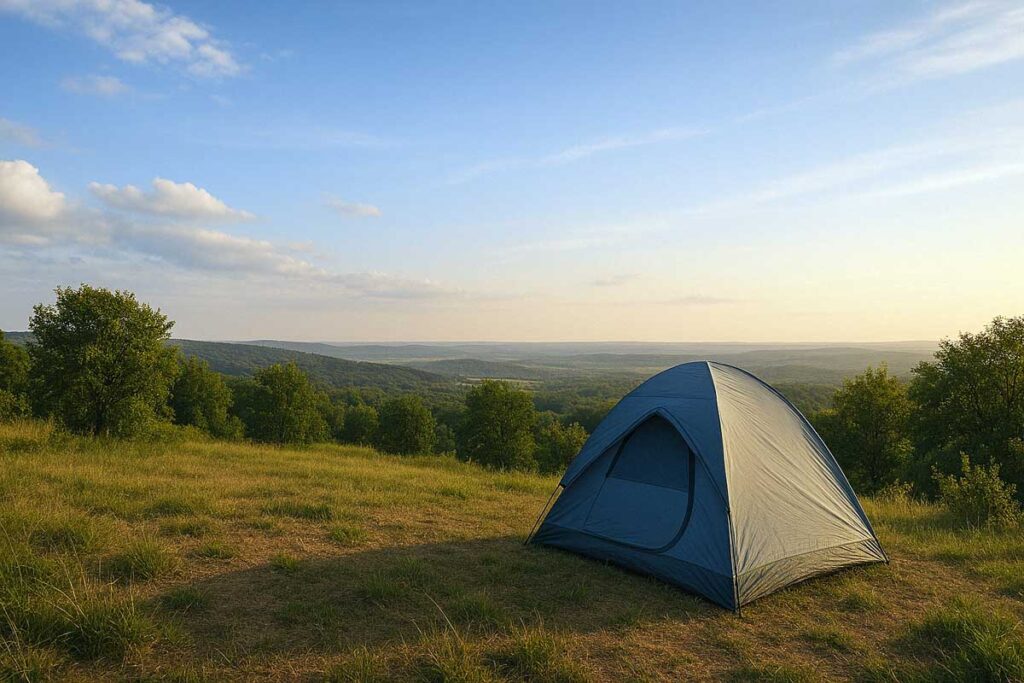
Your choice of campsite plays a crucial role in reducing mosquito exposure. Here’s how to select an optimal spot:
- Avoid Areas Near Standing Water: Avoid pitching your tent near stagnant water sources such as ponds, marshes, or even puddles. Mosquitoes breed in these areas.
- Elevated Areas: If possible, choose a raised campsite. Areas with higher elevation tend to have fewer mosquitoes.
- Sheltered Spots: Look for locations that offer natural wind protection. Mosquitoes are weak flyers, and a gentle breeze can help keep them at bay.
- Vegetation Considerations: While a little greenery is refreshing, overly dense vegetation can harbor mosquitoes. Clear a small perimeter around your tent if necessary.
Taking these steps at the planning stage is one of the most effective ways to reduce encounters with mosquitoes.
Setting Up Physical Barriers
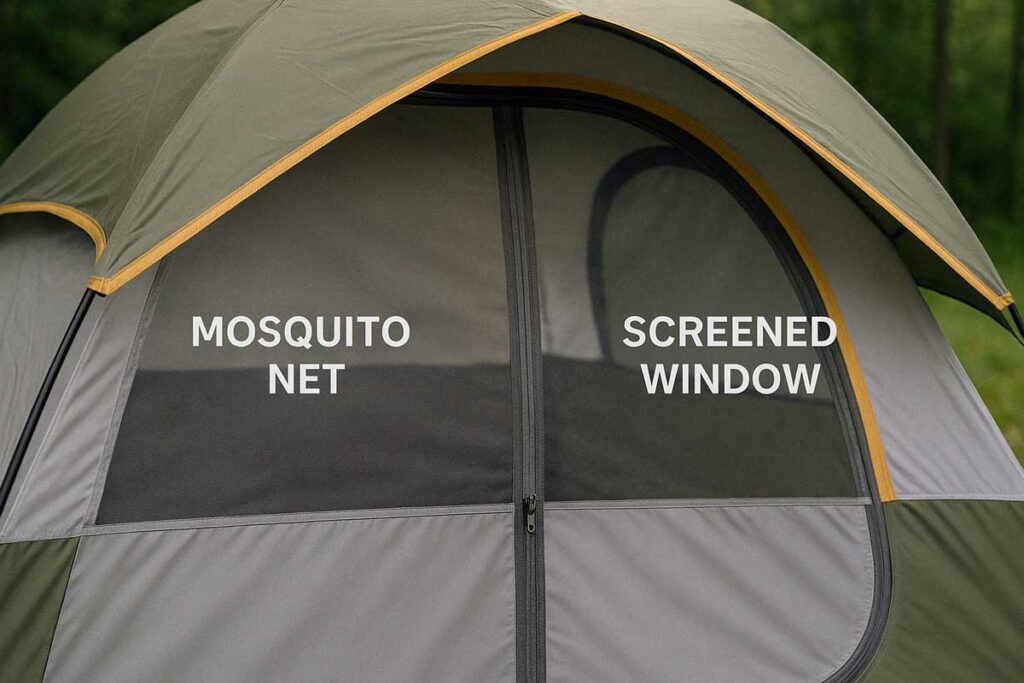
Creating effective physical barriers is a practical way to keep mosquitoes away. Here are some essential measures:
- Screened Tents and Mosquito Nets: Use tents with tight-fitting mesh screens to block mosquitoes from entering. Additionally, hang extra mosquito nets around your sleeping area for added protection.
- Campsite Layout: Place your sleeping area away from the outer perimeter of the tent. Even if a mosquito manages to enter, a small distance from the tent walls may reduce the chances of it reaching you.
- Door and Window Seals: Ensure that all openings in your tent are secured with proper closures or zippers that seal completely.
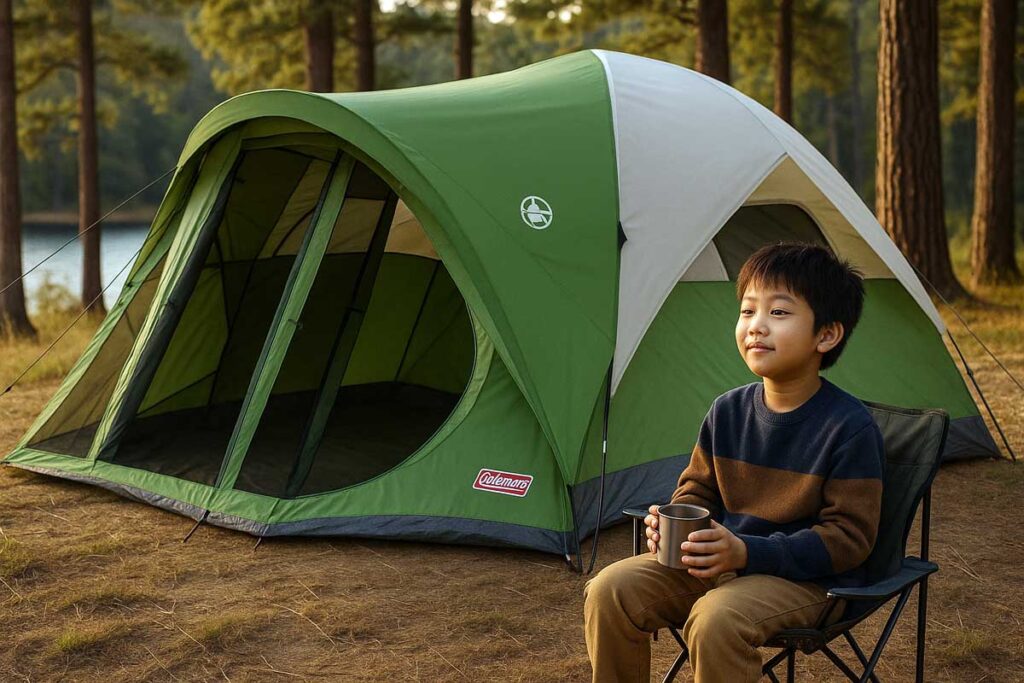
These physical measures create a reliable first line of defense against mosquitoes while you sleep or relax at the campsite.
Using Insect Repellents Effectively
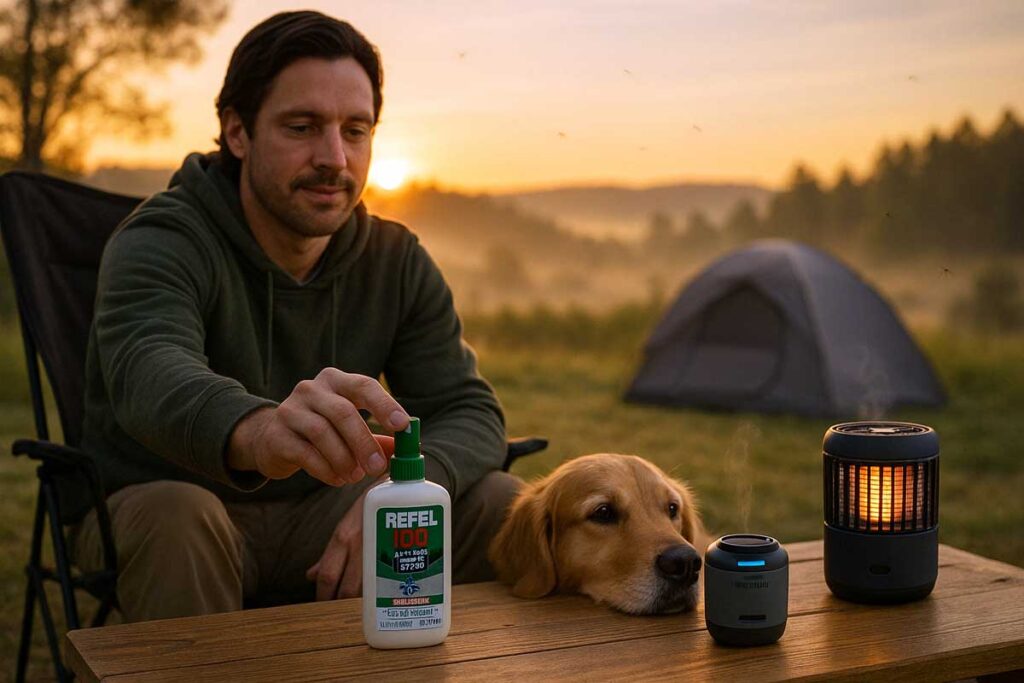
Insect repellents are a key component in your mosquito prevention plan. Here’s how to use them wisely:
- Choose the Right Repellent: For the best protection, select repellents containing DEET, picaridin, or oil of lemon eucalyptus. Read the labels and follow application instructions carefully.
- Application Tips: Apply repellent to exposed skin and on clothing. Reapply at the intervals suggested on the product label. Avoid applying too much, as this might cause skin irritation.
- Environmental Considerations: When camping, especially in the evenings, use repellents on both yourself and around the campsite. Consider spraying around entry points of your tent or picnic area.
- Natural Options: Natural repellents like citronella or lemongrass-based products can be a suitable alternative for those who prefer organic solutions. However, note that these may need to be reapplied more frequently.
Using the right repellent and applying it properly ensures that you have continuous protection during your outdoor activities.
Read more: Ways to Protect a Hammock from Bugs
Smart Clothing Choices
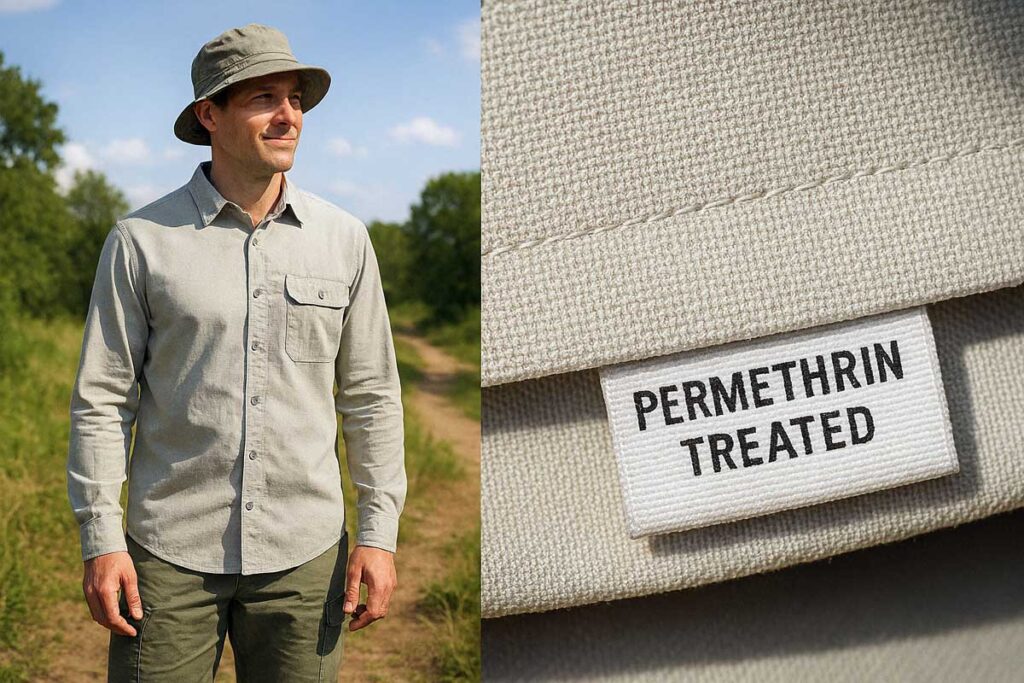
What you wear while camping can significantly influence your exposure to mosquitoes. Follow these guidelines:
- Covering Up: Wear long-sleeved shirts and long pants, especially during early morning and late evening when mosquitoes are most active.
- Light-Colored Clothing: Mosquitoes are drawn to dark colors. Opt for light-colored clothing which is less attractive to these insects.
- Treated Clothing: Consider clothing that has been pre-treated with permethrin, an insecticide that repels and kills mosquitoes on contact.
- Layering: Use breathable, layered clothing to maintain comfort in changing conditions without sacrificing protection.
Dressing appropriately minimizes the exposed skin areas that mosquitoes can target.
Natural Mosquito Deterrents
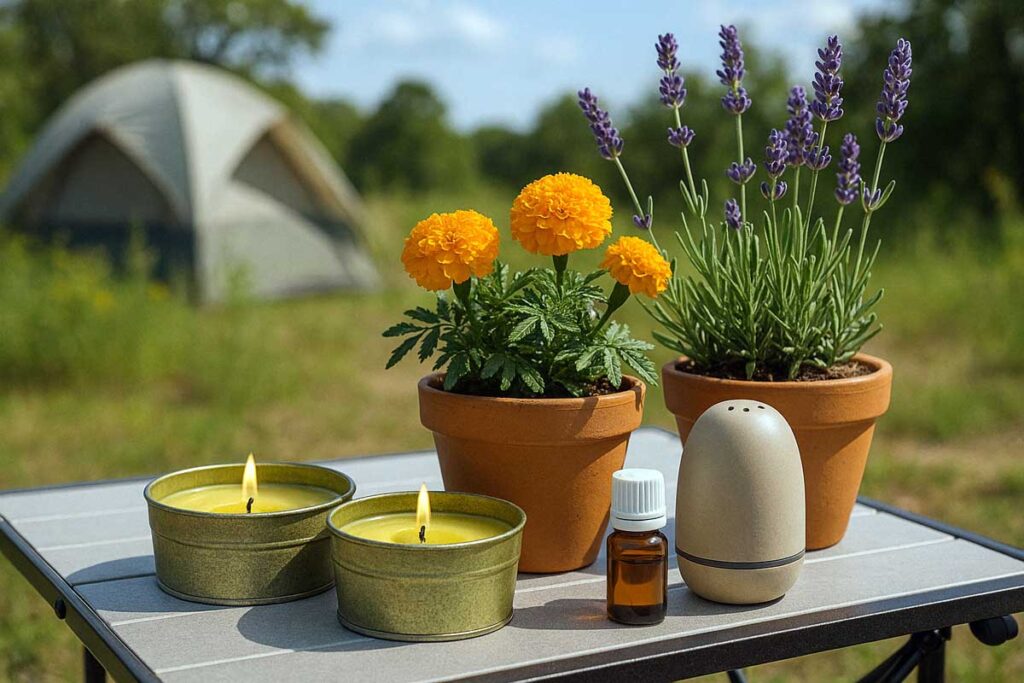
There are several natural methods to deter mosquitoes that work well when combined with other strategies:
- Citronella Candles and Torches: Set up citronella candles or torches around your campsite. They release a scent that mosquitoes avoid.
- Herbs and Plants: Some plants such as lavender, basil, and marigold are known to repel mosquitoes. If possible, keep a small potted herb garden near your camping area.
- Essential Oil Diffusers: Use portable diffusers with essential oils like eucalyptus, lavender, or tea tree oil to create a barrier around your tent.
- DIY Repellent Sprays: Create your own spray using essential oils mixed with water and a small amount of alcohol. This can be sprayed around the campsite and on clothing.
These natural solutions are particularly useful for those who prefer an organic approach and can complement chemical repellents effectively.
Utilizing Technology and Devices
Modern technology provides a few devices that can help keep mosquitoes at bay:
- Bug Zappers: Electronic bug zappers attract mosquitoes with light and kill them on contact. Place these at a safe distance from seating areas.
- Portable Fans: Mosquitoes are weak flyers, so using a battery-operated fan at your seating area can disrupt their flight and keep them away.
- Thermacell Devices: These small, portable devices create a zone of protection by dispersing a repellent into the air. They are popular among campers for their ease of use and effectiveness.
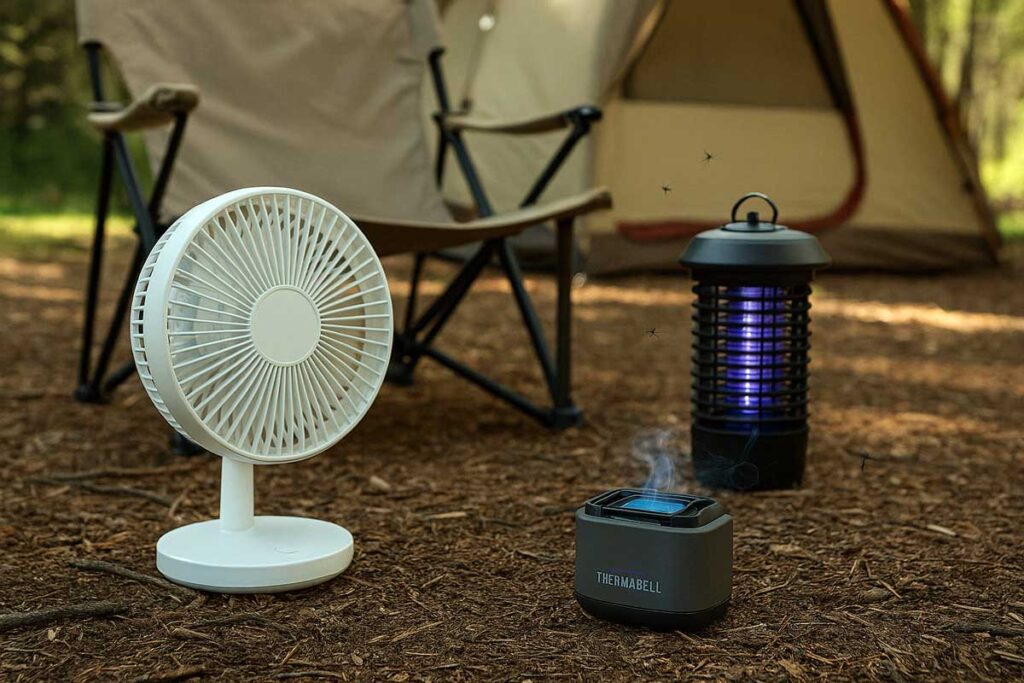
Consider adding one or two of these devices to your gear, especially if you are camping in an area with a high mosquito population.
Maintaining a Clean Campsite
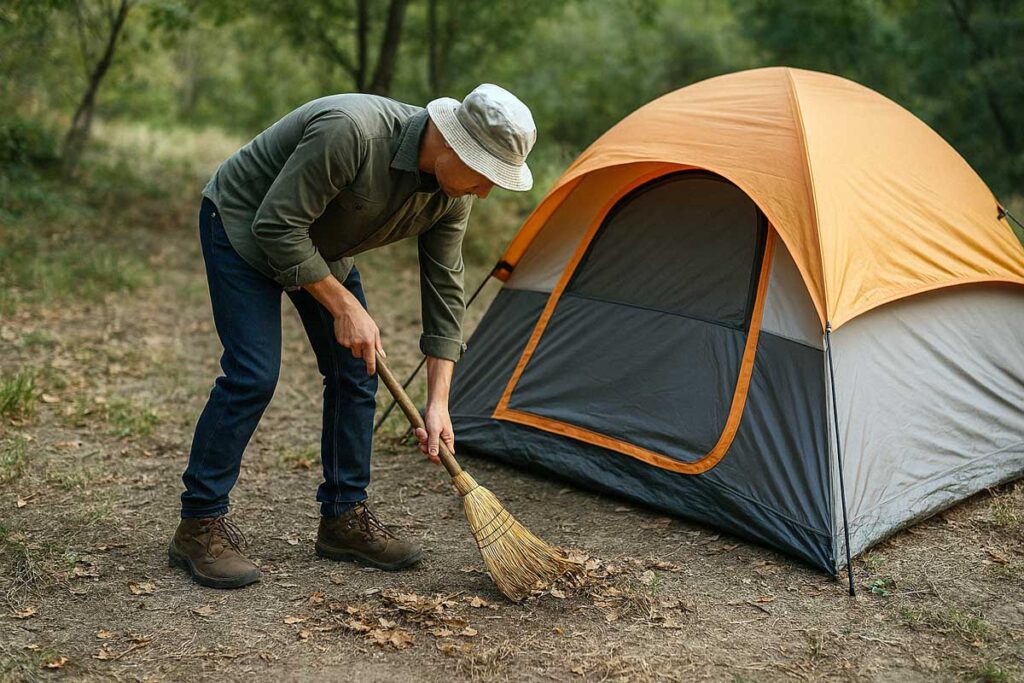
A clean campsite is less attractive to mosquitoes. Here are some simple steps:
- Remove Standing Water: Frequently check for any standing water near your campsite and eliminate it. Look for water in containers, tarps, or any depressions in the ground.
- Proper Food Storage: Keep food and trash sealed and away from your sleeping area. Food residue can attract other insects that in turn attract mosquitoes.
- Regular Cleaning: Sweep or clear the area around your tent to remove leaves and debris that might hold moisture and become breeding grounds for mosquitoes.
Keeping your area tidy contributes significantly to a less inviting environment for mosquitoes.
DIY Solutions and Home Remedies
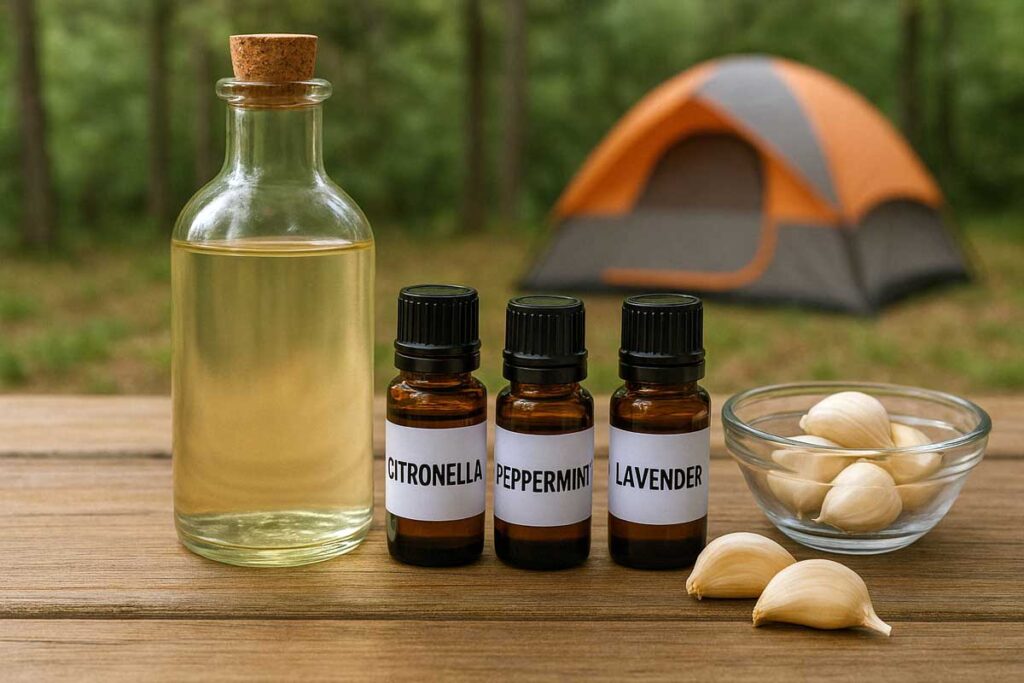
For those who enjoy hands-on approaches, several DIY methods can be effective:
- Garlic Spray: Some campers use garlic-infused sprays as a natural deterrent. Although the effectiveness may vary, it is a simple option to try.
- Vinegar Solutions: A diluted mixture of apple cider vinegar and water can be sprayed around the campsite. The strong odor is said to keep mosquitoes away.
- Oil Blends: Combining a few drops of essential oils such as citronella, peppermint, and lavender in a spray bottle with water makes for a quick and easy repellent.
While DIY solutions may not replace commercial repellents, they can serve as supplementary tools when used correctly.
Best Practices and Additional Tips
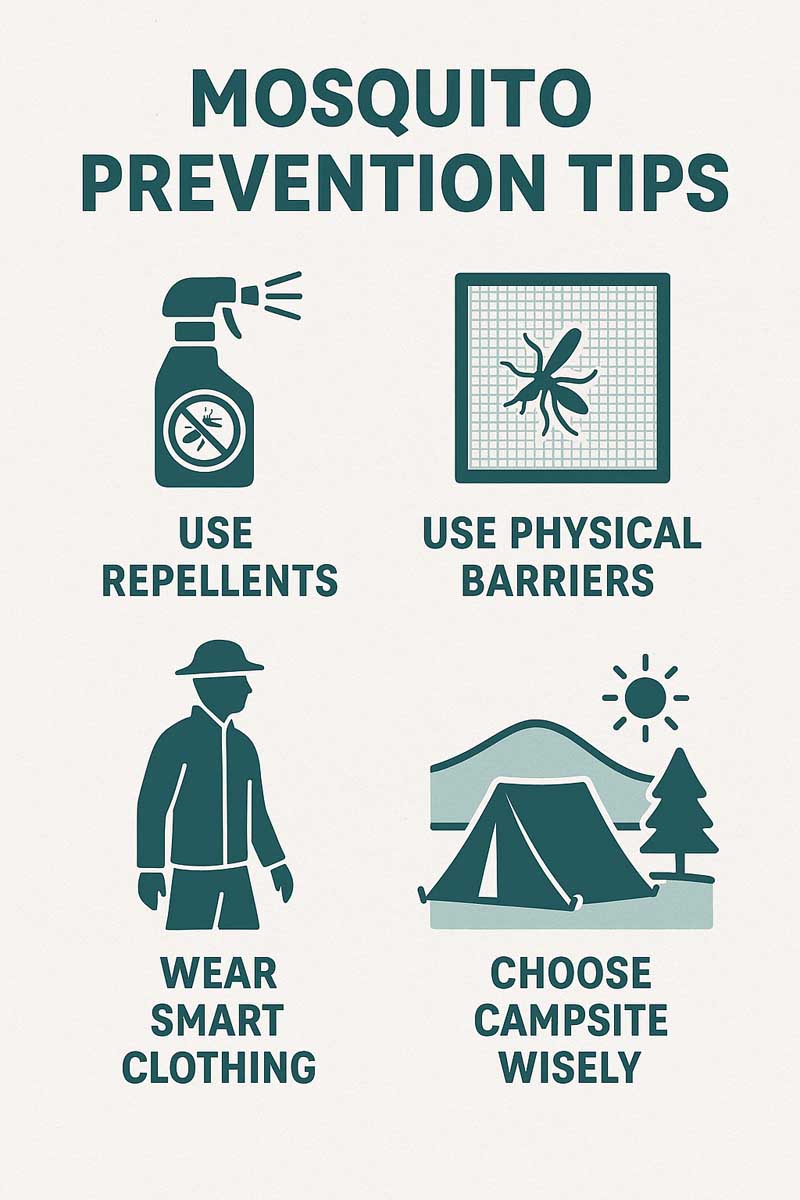
Consistency and preparation are key to keeping mosquitoes away while camping. Here are some extra best practices:
- Timing Is Crucial: Mosquitoes are most active during dawn and dusk. Plan your activities accordingly, and be extra cautious during these times.
- Multiple Layers of Protection: Rely on several strategies simultaneously—physical barriers, repellents, smart clothing, and natural deterrents. No single method is foolproof on its own.
- Plan for the Weather: Wind and temperature can influence mosquito activity. Check the weather forecast before setting out and adjust your plans if conditions are likely to worsen.
- Educate Yourself and Your Group: Make sure everyone in your camping group is aware of the measures being taken. A unified approach ensures that all members are protected.
Implementing these practices will create a robust system against mosquitoes and help ensure a peaceful camping experience.
Recap and Final Thoughts
In summary, here are the key takeaways for keeping mosquitoes away while camping:
| Step | Action |
|---|---|
| Campsite Selection | Choose a spot away from stagnant water and in a breezy area. |
| Physical Barriers | Use screened tents, mosquito nets, and secure all openings. |
| Insect Repellents | Apply repellents with DEET or natural alternatives, reapply as necessary. |
| Clothing Choices | Wear long sleeves, pants, and light-colored clothing; consider permethrin-treated attire. |
| Natural Deterrents | Use citronella candles, plants, and essential oil diffusers around your campsite. |
| Technological Aids | Utilize bug zappers, portable fans, or Thermacell devices for extra protection. |
| Maintaining Cleanliness | Remove standing water, store food properly, and maintain a tidy campsite. |
| DIY Remedies | Supplement with homemade sprays like garlic or vinegar solutions if desired. |
These techniques not only safeguard you from mosquito bites but also contribute to a healthier, more pleasant outdoor experience. By following these proven steps, you can enjoy the beauty of nature with the confidence that you have minimized the risk of mosquito nuisance and potential health issues.
Remember that no single method guarantees complete protection, but combining them creates layers of defense that significantly reduce your risk. Make sure to reassess your campsite setup regularly and be prepared to adjust your strategies based on the local environment and weather conditions.
If you have any further questions or need additional advice, feel free to reach out. Safe and happy camping!

